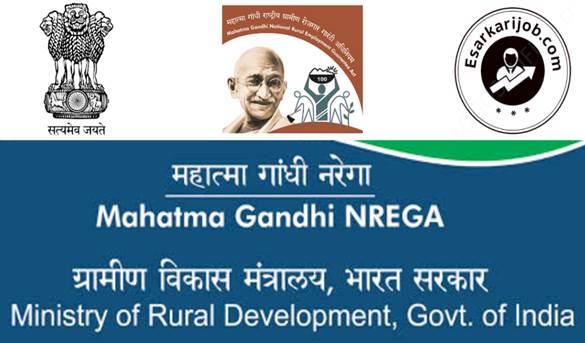Description

Copyright infringement not intended
In News
- The Union government has formed a committee to review the implementation of the Mahatma Gandhi National Rural Employment Guarantee Act (MGNREGA) scheme.
- One of the main objectives is to assess the programme’s efficacy as a poverty alleviation tool.
- The committee is headed by Amarjeet Sinha (former Rural Development secretary) and has three months to submit its findings and recommendations.
Details
- The Mahatma Gandhi National Rural Employment Guarantee Act (MGNREGA) scheme was passed in 2005, it guarantees 100 days of unskilled work per year for every rural household that wants it. There are currently 15.51 crore active workers enrolled under the scheme.
- The Sinha committee has been charged to study the different factors behind the demand for MGNREGA work, expenditure trends and inter-State variations, and the composition of work.
- The committee would also suggest changes needed in governance structures to make MGNREGA more effective.

Mahatma Gandhi National Rural Employment Guarantee Act (MGNREGA) 2005
- The MGNREGA is Indian labour law and social security programme that aims to guarantee the 'right to work'.
- It provides a legal right for 100 days of employment in every financial year to at least one member of every rural household whose adult members agree to do unskilled manual work.
- The Ministry of Rural Development is monitoring the implementation of this scheme.
- Women were guaranteed one-third of the jobs made available under the MGNREGA.
- The MGNREGA programme also helps in creating durable assets (such as roads, canals, ponds and wells).
- Work is to be provided within 5 km of workers' residence and minimum wages are to be paid.
- Right to get unemployment allowance in case employment is not provided within 15 days of applying.
- MGNREGA is implemented mainly by gram panchayats. Adult members of rural households submit their details to the Gram Panchayat. The Gram Panchayat registers households after making an enquiry and issues a job card. The job card contains the details of the adult member enrolled and his /her photo
- The involvement of contractors is banned.
- The Social Audit of MGNREGA works is mandatory, which ensures accountability and transparency.
Significance of MGNREGA
- MGNREGA provides a 'right to work' in accordance with Article 41 which directs the State to secure for all citizens the right to work.
- It also protects the environment through sustainable rural works, which is consistent with Article 48A which directs the State to protect the environment.
- Article 21 guarantees the right to life with dignity to every citizen of India, this act promotes dignity among the rural people through an assurance of livelihood security.
- Article 16 guarantees equality of opportunity in matters of public employment and prevents the State from discriminating against anyone in matters of employment on the grounds only of religion, race, caste, sex, descent, place of birth, place of residence or any of them.
- NREGA also follows Article 46 which requires the State to promote the interests of and work for the economic uplift of the scheduled castes and scheduled tribes and protect them from discrimination and exploitation.
- Article 40 mandates the State to organize village panchayats and award them with such powers and authority as may be necessary to enable them to function as units of self-government.
Way Forward
- The programme is providing economic security and creates rural assets. It provides “Green” and “Decent” work.
- It also helps in protecting the environment, reducing rural-urban migration and promoting social equity, etc.
- It focuses on the economic and social empowerment of women.
- Works under MGNREGA help to address the climate change vulnerability and protect the farmers from such risks and conserve natural resources.
- MGNREGA acted as a crucial safety net during the COVID pandemic. In the financial year 2020-21, the number of personal days of work provided under the scheme rose drastically to 389 crores, in comparison to the previous year’s figure of just 265 crores.
- There is a need for better coordination between various government departments to improve the efficiency of the scheme.

https://epaper.thehindu.com/Home/ShareArticle?OrgId=GLDAIEM51.1&imageview=0
https://t.me/+hJqMV1O0se03Njk9















